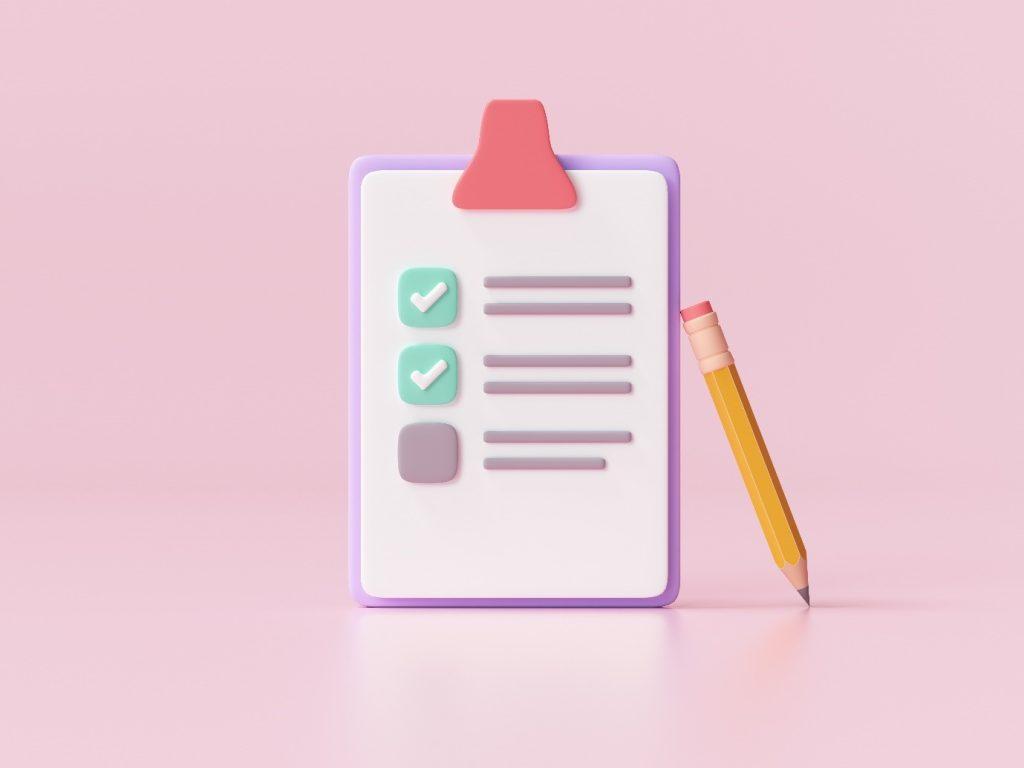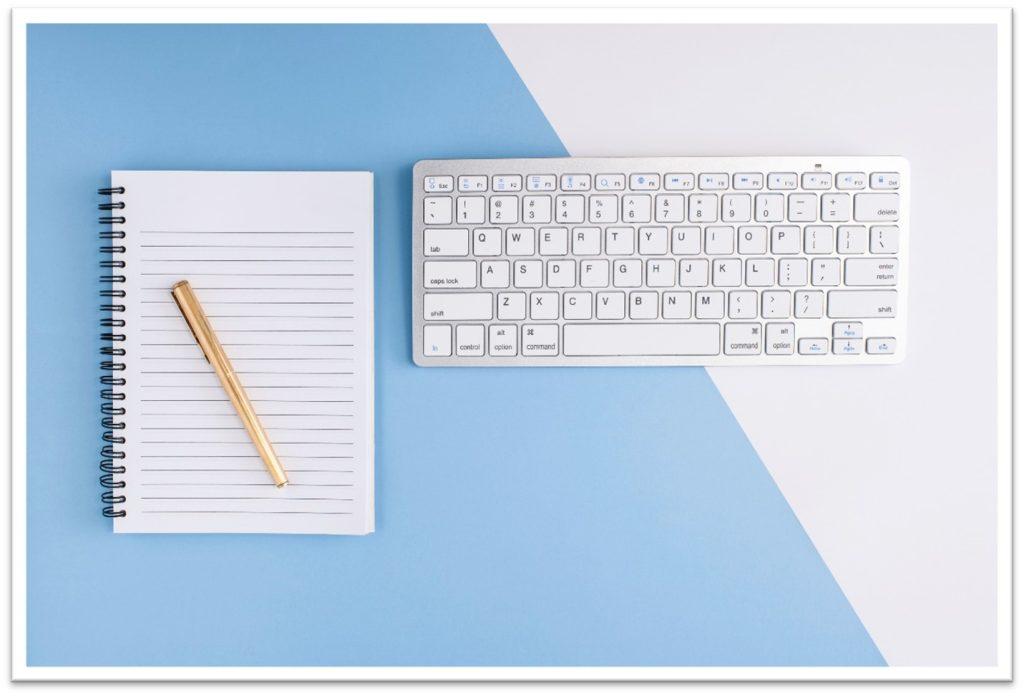Student CV Writing Guide

Crafting a compelling CV is an essential step in showcasing your skills, experiences, and achievements to potential employers. Whether you’re applying for internships, part-time jobs, or graduate programs, a well-crafted CV can make a significant impact. This guide is designed to assist you in creating a standout CV that effectively highlights your strengths and sets you apart from the competition.
See here how to create your Europass CV.
- PERSONAL INFORMATION:
- Include your full name, contact information (phone number, email address), and optionally your address.
- Ensure your email address is professional and easy to read.
- PROFILE/SUMMARY:
- Write a brief overview highlighting your key skills, experiences, and career objectives.
- Tailor this section to the specific job or industry you’re targeting.
Example:
Enthusiastic and dedicated medical student with a keen interest in patient care and medical research. Demonstrated commitment to academic excellence and a passion for learning about the intricacies of the human body. Currently pursuing a Bachelor of Medicine degree with a focus on clinical skills development and evidence-based practice. Possesses strong interpersonal skills and a compassionate bedside manner, cultivated through volunteer work in healthcare settings. Committed to making a positive impact in the field of medicine by providing compassionate care and contributing to advancements in healthcare practices.
- EDUCATION:
- List your educational institutions in reverse chronological order, starting with the most recent.
- Include the name of the institution, degree obtained or in progress, graduation date (or expected graduation date), and any relevant academic achievements.
- RELEVANT EXPERIENCE:
- Detail any work experience, internships, volunteer work, or extracurricular activities that are relevant to the position you’re applying for.
- Use action verbs and quantifiable achievements to describe your responsibilities and accomplishments.
Example:
Clinical Experience:
Medical Intern, [Hospital Name], [City, State], [Month, Year] – Present
- Assisted healthcare professionals in patient care, including taking vitals, conducting physical examinations, and updating medical records.
- Observed medical procedures and participated in rounds with attending physicians.
- Provided direct patient care under supervision, including administering medications and assisting with minor procedures.
Volunteer Experience:
Medical Volunteer, [Clinic/Hospital Name], [City, State], [Month, Year] – Present
- Helped patients and medical staff, including escorting patients, delivering specimens, and maintaining cleanliness in patient rooms.
- Offered emotional support to patients and their families during challenging times.
- SKILLS:
- Highlight your relevant skills, such as technical skills, languages, certifications, or soft skills.
- Organize your skills into categories to make them easier to read.
Example:
- Proficient in Microsoft Office Suite and medical software applications.
- Strong communication skills, both written and verbal.
- Excellent attention to detail and ability to multitask in fast-paced environments.
- CPR and Basic Life Support certified.
- Fluent in English
- ADDITIONAL SECTIONS:
- Include additional sections such as conferences, certificates, publications, projects, or professional affiliations if they strengthen your candidacy.
Example:
Certifications
- CPR Certification (American Heart Association)
- Basic Life Support Certification (American Red Cross)
Conference Attendance:
- Attended [Conference Name], [Location], [Month, Year]
Description: Participated in workshops and seminars on [relevant topics], networked with professionals in the field, and gained insights into current trends and research advancements.
- Attended [Conference Name], [Location], [Month, Year]
Description: Engaged in discussions on [relevant topics], attended keynote presentations by industry leaders, and explored opportunities for collaboration and professional development.
- FORMATTING AND PRESENTATION:
- Keep your CV concise and focused, ideally limited to one page for students or recent graduates.
- Use a clean and professional format with consistent font sizes and styles.
- Use bullet points to organize information and make it easier to read.
- Proofread your CV carefully to ensure there are no grammatical or spelling errors.
A well-crafted CV is your opportunity to make a positive impression on potential employers and demonstrate your qualifications for the job. By following this guide and tailoring your CV to each application, you’ll be well-equipped to showcase your skills and experiences effectively. Good luck!
Cover Letter Writing Guide

A well-crafted cover letter can significantly enhance your application for internships, scholarships, exchange programs, or further studies. It provides a platform to express your enthusiasm, showcase your qualifications, and demonstrate your fit for the opportunity. This guide is designed to help you create a compelling cover letter that highlights your strengths and aligns with the requirements of your desired program or position.
See here how to create your Europass Cover Letter.
- Understanding the Purpose:
- Explain why you are writing the letter and what you aim to achieve.
- Highlight how the opportunity aligns with your academic and career goals.
- Structuring Your Letter:
- Header: Include your name, address, email, phone number, and the date. Follow this with the recipient’s name, title, organization, and address.
- Salutation: Address the letter to a specific person if possible (e.g., “Dear Dr. Smith”). If you do not have a contact name, use “Dear Hiring Committee” or “Dear Admissions Team.”
- Introduction:
- Begin with a strong opening statement that grabs attention.
- Briefly introduce yourself and mention the purpose of your letter.
- Body:
- Paragraph 1: Explain why you are interested in the opportunity. Discuss your passion for the field and your motivation for applying.
- Paragraph 2: Highlight your relevant academic achievements, experiences, and skills. Provide specific examples to demonstrate your qualifications.
- Paragraph 3: Discuss how the opportunity fits into your career plans. Explain what you hope to gain and how it will help you achieve your career objectives.
- Conclusion:
- Summarize your key points and restate your enthusiasm for the opportunity.
- Express your willingness to provide additional information and your availability for an interview.
- End with a polite and professional closing statement.
- Formatting and Presentation:
- Keep your letter concise and focused, ideally one page in length.
- Use a professional font and a clean, easy-to-read layout.
- Proofread carefully to ensure there are no spelling or grammatical errors.
- Tips for a Strong Letter:
- Be authentic and sincere in your writing.
- Tailor your letter to each specific opportunity, highlighting the most relevant experiences and skills.
- Use active language and positive tone throughout the letter.
Example of a Cover Letter:
[Your Name] [City] [Email Address] [Phone Number] [Date]
[Recipient’s Name] [Title] [Organization] [Address]
Dear [Recipient’s Name],
I am writing to express my strong interest in the [Position/Program] at [Organization/University]. As a dedicated and passionate [Your Major/Field] student at [Your University], I am excited about the opportunity to [specific aspect of the position/program] and contribute to [Organization/University]’s mission.
Throughout my academic journey, I have developed a solid foundation in [Relevant Skills or Subjects]. My experience as a [Relevant Experience] has refined my skills in [Specific Skills], and I have successfully [Achieved Something Relevant]. These experiences have fuelled my enthusiasm for [Field/Industry] and motivated me to pursue this opportunity at [Organization/University].
The [Position/Program] at [Organization/University] aligns perfectly with my career aspirations. I am particularly drawn to [Specific Feature of the Opportunity], which I believe will provide invaluable experience and knowledge to further my goals of [Career Objective]. I am eager to bring my [Specific Skills or Qualities] to [Organization/University] and contribute to [Specific Goal or Project].
I am enthusiastic about the possibility of discussing how my background, skills, and aspirations align with the [Position/Program]. Thank you for considering my application. I look forward to the opportunity to contribute to [Organization/University] and am available at your earliest convenience for an interview.
Sincerely,
[Your Name]
A well-written cover letter can significantly impact your application by showcasing your passion, qualifications, and fit for the opportunity. By following this guide, you will be able to construct a persuasive and professional letter that highlights your strengths and aligns with the requirements of your desired program or position. Good luck!
Job Interview Guide for Students

Preparing for a job interview is a crucial step in your career journey. Whether you’re applying for internships, part-time jobs, or entry-level positions, understanding how to present yourself effectively can make a significant difference. This guide provides practical tips and strategies to help you succeed in your job interviews.
- Pre-Interview Preparation:
Research the Company:
- Learn about the company’s mission, values, products, and services.
- Familiarize yourself with recent news, achievements, and industry trends related to the company.
Understand the Job Role:
- Carefully review the job description and note the required skills and qualifications.
- Be prepared to discuss how your background and experiences align with the role.
Practice common interview questions:
- Prepare answers for frequently asked questions such as:
- Tell me about yourself.
- Why do you want to work here?
- What are your strengths and weaknesses?
- Describe a challenge you faced and how you overcame it.
- Use the STAR method (Situation, Task, Action, Result) to structure your responses.
Prepare your own questions:
- Show your interest in the role by asking insightful questions about the company, team, and job responsibilities.
- Examples:
- Can you describe the team I would be working with?
- What are the main challenges the team is currently facing?
- What does success look like in this position?
- On the Day of the Interview:
Dress appropriately:
- Choose professional attire that aligns with the company’s dress code.
- Ensure your clothes are clean, ironed, and fit well.
Arrive early:
- Aim to arrive 10-15 minutes before your scheduled interview time.
- Plan your route in advance to avoid any delays.
Bring necessary documents:
- Carry extra copies of your resume, a list of references, and any other required documents.
- Bring a notebook and pen for taking notes.
- During the Interview:
First impressions matter:
- Greet your interviewer with a firm handshake and a friendly smile.
- Maintain good posture and eye contact throughout the interview.
Communicate clearly and confidently:
- Listen carefully to the questions and take a moment to think before responding.
- Speak clearly and at a moderate pace.
Highlight your skills and experiences:
- Use specific examples from your academic and work experiences to demonstrate your skills.
- Be honest about your experiences and focus on your ability to learn and adapt.
Show enthusiasm and positivity:
- Express your enthusiasm for the role and the company.
- Maintain a positive attitude, even when discussing challenges or setbacks.
- Post-Interview:
Follow Up with a Thank-You Note:
- Send a thank-you email within 24 hours of your interview.
- Express your appreciation for the opportunity and reiterate your interest in the role.
- Mention something specific that you discussed during the interview to make your note personal and memorable.
Reflect on the interview:
- Consider what went well and identify areas for improvement.
- Use this reflection to prepare for future interviews.
ADDITIONAL TIPS:
Stay professional:
- Be polite and courteous to everyone you interact with, from receptionists to interviewers.
- Avoid using slang or overly casual language.
Stay calm under pressure:
- If you’re unsure about a question, it’s okay to ask for clarification or take a moment to think.
- Practice deep breathing techniques to stay calm and focused.
Leverage your university’s resources:
- Take advantage of mock interview sessions and career counseling services offered by your university.
- Seek feedback from career advisors to improve your interview skills.
Example of the STAR Method:
Question: Can you describe a time when you faced a significant challenge and how you overcame it?
Situation: During my final year of university, I was part of a team project for our capstone course. We were tasked with developing a comprehensive business plan for a start-up, which required extensive research, collaboration, and time management.
Task: Halfway through the project, one of our team members unexpectedly dropped out due to personal reasons. This significantly increased the workload for the remaining team members, and we were concerned about meeting our deadlines and maintaining the quality of our work.
Action: I took the initiative to reorganize the team and reassign the tasks. I called for an urgent meeting to discuss the situation and develop a new plan. We redistributed the workload evenly and set up more frequent check-ins to ensure everyone was on track. Additionally, I volunteered to take on the extra research and writing tasks that the departed member was responsible for. I also reached out to our professor to inform them of the situation and request an extension, which we were granted.
Result: Despite the challenges, we successfully completed the project on time and received positive feedback from our professor. Our business plan was awarded one of the top grades in the class. This experience taught me the importance of flexibility, effective communication, and teamwork in overcoming obstacles.
A successful job interview requires thorough preparation, confident communication, and a positive attitude. By following this guide, you will be well-equipped to make a strong impression and increase your chances of landing the job. Good luck!

Searching for a job can be a complex process, but it doesn’t have to be difficult. To make your search easier and maximize your chances of employment, here is a list of the most popular and effective job platforms in the country:
MediJobs – A platform dedicated to medical professionals, offering job opportunities in hospitals, clinics, and other medical institutions in Romania.
eJobs – One of the largest recruitment platforms in Romania, offering a wide range of job opportunities in various fields.
BestJobs – Another well-known recruitment platform with numerous job listings for different levels of experience.
LinkedIn – The professional network LinkedIn is not only an excellent tool for networking but also a source of career opportunities. Many companies post directly on LinkedIn and search for suitable candidates for various positions.
Hipo.ro – An online recruitment portal offering jobs for young professionals and experts in various sectors.
Undelucram.ro – Here you can find job listings, employee reviews about companies, salary information, and details about the hiring process.
Indeed – A global job search platform that also includes listings for the Romanian market.
Glassdoor – Besides company reviews and information, Glassdoor offers a job section where you can find various positions in companies from Romania.
Freelance.ro – A platform specializing in freelance project offers and collaborations, connecting freelancers with clients in various fields and specializations.
Regardless of the field you are in or your level of experience, these platforms can provide you with the opportunities you need to find your next job. Update your CV regularly and be proactive in your search!
